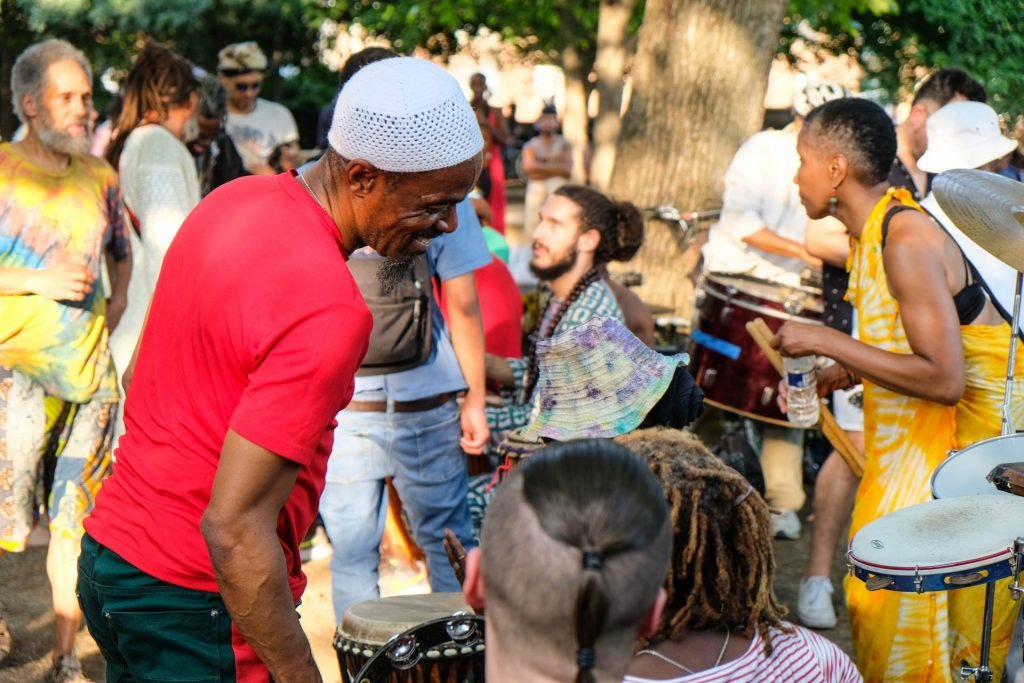What is your plan to keep getting along with each other? Waiting for cohesion-building to happen naturally might not work out.

Understanding Personality
Although most groups will welcome a wide variety of personalities and the different skills and role preferences that come with them, yet these differences can create a sense of distance. Understanding other’s strengths can foster appreciation and help with role assignments that allow each to shine. A small remotely located group may find that outgoing types don’t find enuf social stimulation in the community. On the contrary, groups that regularly host events may find that extreme introverts don’t last long because of the constant demand of meeting new people, being consistently sociable, and remaining available to assist guests. One way to accommodate introverts would be to deliberately assign them to behind-the-scenes roles. See our page explaining how personality plays out in intentional community, based on the Big 5 and the MBTI.
Meetings for Emotional Sharing and Open Communication
You might state the following in your group agreements…
We foster close and/or harmonious interpersonal relationships in the following ways:
- We have regular opportunities to encourage all to share their feelings.
- We have regular mandated “group work” to resolve conflicts as they arise.
- All are required to share feelings in a group setting so we can maintain harmonious relationships, but your sharing can be brief.
- Our community has obligatory group work where we are expected to help resolve disputes.
- We allow relationships to develop naturally, rather than planning team building exercises or mandated group circles.
-
We check in with each other’s comfort with physical touch (a good article about consent culture).
Do you have plans for meeting the following preferences and needs?
-
- Guidance: A mentor or counselor to check in with monthly might help your group gain proficiency in a variety of techniques.
-
- Emotional sharing: Many communities deeply believe in the importance of listening to each other, but find that they can’t get thru the management meetings if they allow the “feelings” part to continually derail the discussion of practical matters. Many ICs manage this tension by having one weekly meeting for practical decisions and a separate one for interpersonal discussion and conflict resolution. This may extend to emotional processing. Alternatively, emotional processing and other personal growth work may be a function that the members are requested to seek as a paid service.
-
- Holding of personal or interpersonal challenges: This will give members a time for sharing information or concerns that are important to discuss, but they could derail the progress of practical functions if they became the focus during a business meeting.Ceremony and celebration: Celebrations of meeting a group goal or milestone, or religious observance, are important for cohesion.
Our group work processes links below detail time-tested options for group processes, many of which focus on sharing of experience and interpersonal connection. If your group has decided on a type of group format you prefer, it would be helpful to mention that in your IC description.
Free facilitated online group meetings to foster connection
Accountability meeting & power dynamics
Group circle discussion processes
Activities for Fun and Bonding
Note what your group intends to prioritize as group entertainment. It’s important to have group activities for fun and bonding. Will you have a group library? Shared movie subscriptions? Are you close to outdoor recreation opportunities?
-
- Play: Outings for fun are an important way to foster good relationships in the group. These can be scheduled on a regular basis. This could be a sport or favorite activity.
- Service: This is some kind of giving back, ideally an in-person monthly project, but could include deciding together who to fund on Kiva.org or other microcredit lending.
- Collective chores: Aside from regular chores, sometimes a work party helps to rally everyone to participate in a once-per-year rather onerous and long task that is simple enough for everyone to participate in.
- Ceremony and celebration: Celebrations of meeting a group goal or milestone, or religious observance, are important for cohesion.